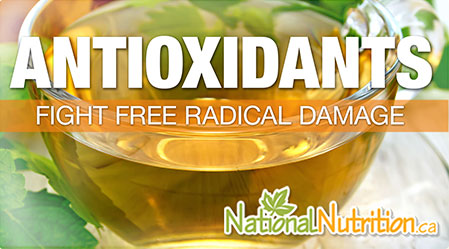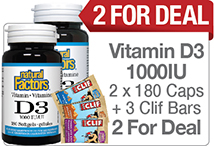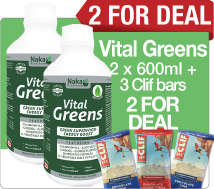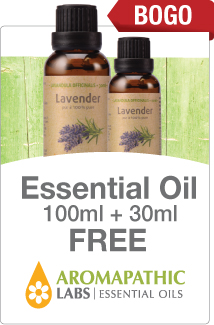
Antioxidants found in many superfruits, fight free radical damage that we encounter through smoke, processed foods, UV Rays and more...
Antioxidants From A-Z
Updated Apr. 18th, 2024 | Read Time: 7 Minutes | What You Will Learn:
- What Is An Antioxidant?
- What Are the Effects of Free Radicals?
- What Does An Antioxidant Do?
- A-Z of Antioxidants
- Vitamin A
- Vitamin C
- Vitamin E
- Alpha Lipoic Acid
- Carotenoids
- CoEnzyme Q10 (CoQ10)
- Super Oxide Dysmutase (SOD)
- Glutathione
- Matcha
- Melatonin
- Superfruits
- What Is An ORAC Value?
- Antioxidant Solubility and Absorption
- How Can I Get More Antioxidants?
- Important Information
- Antioxidant Supplement FAQs
- What are Antioxidants?
- What Foods Are Rich in Antioxidants?
- What Do Antioxidants Do?
- Which Vitamins are Antioxidants?
- Where Can I Buy Antioxidant Supplements?
What Is An Antioxidant?
Antioxidants are a large class of substances that help to neutralize free radicals. Free radicals are unstable molecules with unpaired electrons that are highly reactive, damaging surrounding cell membranes, fats, and fat-soluble vitamins and nutrients. We encounter free radicals through environmental exposures, such as cigarette smoke, air pollution, processed foods, and ultraviolet radiation from the sun (UV rays).
What Are the Effects of Free Radicals?
Because of the highly reactive nature of free radicals, they can cause damage to any aspect of our cells and tissues. When the injury affects the cellular DNA, the disease can result. When the damage is to cell membranes and nutrients, an inflammatory response can cause various diseases. Eventually, with the prolonged free radical attack, the body begins to break down, resulting in the physical signs of aging.
What Does An Antioxidant Do?
Antioxidants play a huge role in our everyday cellular processes. Because of their far-reaching effects, it is challenging to study the impact of supplementation directly. Instead, research has focused on what occurs when antioxidant levels are low and oxidative stress increases in the body. This condition has been associated with stroke, cardiovascular disease, neurodegenerative disease, arthritis, Parkinson's, Alzheimer's, diabetes, and the physical signs of aging.
Because of their ability to neutralize free radicals, antioxidants act as guardians in our bodies by protecting our cells, DNA, and nutrients from attack. Thus, antioxidants almost work as a "fountain of youth" by protecting us from the physical causes of aging and many diseases. Therefore, it seems rational to suppose that increasing the intake of antioxidants can help to protect against the development of these conditions.
A-Z of Antioxidants
Some examples of better sources of antioxidants are listed below. Please note that fruits and vegetables naturally contain varying combinations and concentrations of many of the vitamins and nutrients listed here:
Vitamin A
This vitamin is required to create molecules in the back of our eyes responsible for vision. Vitamin A also affects blood cell development, immunity, and skin health.
Vitamin C
This vitamin speeds tissue growth and repair, supports hormone production, increases immune system functioning and protects the body from toxins. It also regulates cholesterol, blood pressure and blood clotting.
Vitamin E
Vitamin E is a class of molecules that act as powerful antioxidants that can prevent, and treat, many conditions associated with aging, such as cardiovascular disease, cataracts and Alzheimer's Disease.
Alpha Lipoic Acid
Alpha lipoic acid is a potent dual solubility antioxidant and mitochondrial coenzyme that aids in burning glucose to form energy (as ATP). It is soluble in both fats and water and aids in blood sugar control and liver detoxification. It also helps to regenerate other antioxidants so they can continue to function even after they have been used once.
Carotenoids
This class of molecules is responsible for much of our vision and dramatically benefits eye health. Some examples of common carotenoids are astaxanthin, zeaxanthin, lutein, lycopene and beta-carotene.
CoEnzyme Q10 (CoQ10)
CoQ10 plays a role in the prevention of several cardiovascular diseases, such as heart attacks, strokes, high blood pressure, and high cholesterol.
Super Oxide Dysmutase (SOD)
This enzyme is present in our cells and is responsible for converting the free radical superoxide into hydrogen peroxide and oxygen. It plays a huge role as an antioxidant and anti-inflammatory molecule.
Glutathione
This peptide is found in our liver and plays a significant role in our detoxification pathways. It is used to change toxic chemicals and metabolic byproducts into harmless substances for excretion from the body.
Matcha
Like super-concentrated green tea, matcha helps to provide a massive dose of antioxidants equivalent to drinking 10 cups of regular green tea!
Melatonin
This naturally occurring hormone is released in our brain and is responsible for the feeling we call "sleepy." Levels decline with age, and it is theorized that supplementation can help reverse the effects of aging.
Superfruits
These fruits contain such high levels of antioxidants by weight that they have earned the title "superfruit." Some examples of superfruits are açaí berry, goji berry, noni fruit, and sea-buckthorn.
What Is An ORAC Value?
Oxygen Radical Absorbance Capacity (ORAC) is a laboratory test used as the industry standard for measuring antioxidant capacity in foods. Although ORAC is not a universal standard, it is a commonly accepted way of comparing water-soluble antioxidants like anthocyanins to each other. Different extracts and brands of each substance tested rate differently on the ORAC scale, likely because they have been processed differently. It is recommended that the average person get at least 1670 ORAC per day. Additional health benefits occur at around 2,000 – 3,000 ORAC per day. For some ideas of ORAC scores, please see the table below:
Nutritional Information
| food | orac value (per 100 grams) |
| acai | · up to 102,700 |
| apples with skin | · 2,589 – 3,898 |
| beets | · 1776 |
| blueberry | · 2,359 – 4,669 |
| broccoli | · 1,510 |
| cranberry | · 9,090 |
| goji | · up to 25,300 |
| matcha | · 134,800 |
| noni | · up to 1,500 |
| sea-buckthorn | · up to 70,000 |
| tomato | · 546 - 694 |
Antioxidant Solubility and Absorption
Like most substances in the body, antioxidants can be categorized into two main types, water-soluble and fat-soluble. This helps us to distinguish their roles and the location of the action, as well as how to ensure they are best absorbed. Water-soluble antioxidants, such as vitamin C and glutathione, are the most common. These antioxidants can help protect the nutrients and structural components in the tissue and cellular fluids. Fat-soluble antioxidants, such as vitamin E, can protect lipid membranes like those found surrounding each of the cells in our bodies. Interestingly, alpha lipoic acid is dual soluble. This means it can cross to both sides of the solubility spectrum and dissolve in water or fat.
As such, solubility is essential to keep in mind when considering how and when to take your supplements. Fat-soluble vitamins should come in a fat carrier (oil) or should be ingested with food containing natural fats to promote absorption. Water-soluble antioxidants can generally be absorbed at any time. However, taking them away from food may avoid problems with competition for absorption.
How Can I Get More Antioxidants?
One powerful way of increasing your intake of antioxidants is to increase the number of fruit and veggie servings you get in one day. The minimum recommended number is 5, with many sources suggesting closer to 10 servings a day. Due to the breakneck pace of our lives nowadays and the prohibitive cost of fresh groceries, many of us have difficulty eating as well as we should. The produce we eat is picked before ripened and shipped over long distances. We also often cook the fruits and vegetables that we do eat. Early picking, cooking, and prolonged storage reduce our food's nutritional value and antioxidant content.
If this is the case with your diet, antioxidants can also be supplemented using the sources from the list above. Often combination formulas will include a mixture of the above products in a powder or capsule form. This allows you to boost the antioxidants in your diet significantly.
Important Information
Most antioxidants are sensitive to heat and processing. Cooking and prolonged storage of your antioxidant-rich foods can lead to degradation and a loss of the full benefit. You can explore the links included in this article to learn more. Each supplement listed above has its unique dosing and safety information.
Antioxidant Supplement FAQs
What are Antioxidants?
Antioxidants are molecules that help to fight free radical damage. We can be exposed to free radicals due to pollution and our diets. Free radical damage is one of the significant causes of disease and premature aging.
What Foods Are Rich in Antioxidants?
Fruits and vegetables contain a natural spectrum of antioxidants. Some foods known to be the highest in antioxidants include berries and green tea.
What Do Antioxidants Do?
Antioxidants contain an extra electron, which they can donate to free radicals to neutralize their effects.
Which Vitamins are Antioxidants?
Think ACES! Vitamins A, C, and E and the mineral Selenium are all considered antioxidants.
Where Can I Buy Antioxidant Supplements?
You can find antioxidant supplements at most health food stores.






















Wow, I didn't realize Acai, Goji, and Sea-Buckthorn were so much higher in antioxidants compared to other foods. I had heard of Acai as a super fruit, as well as Goji being beneficial, but hadn't heard of Sea-Buckthorn being recommended before. The information about solubility of vitamins was especially helpful. I had heard of the difference between fat-soluble and water-soluble vitamins when it came to absorption in the body, but didn't realize it affected when you should take your supplements.
Hello Wendy,
Learning about all the different plants that have antioxidant properties is endless. Açai and goji are very popular antioxidants, but yes, sea-buckthorn has amazing properties as well. It's available in topical oil, ingestible liquid or softgel formulas and not only supports inner health and optimal cell growth but is excellent for skin health too. Be sure to check out our article on this supplement too:
https://www.nationalnutrition.ca/articles/supplements/sea-buckthorn/
Stay healthy & well.
I love learning about antioxidants and I truly find it so fascinating how they interact with free radicals to give them an electron to help neutralize them! I remember learning this in school and thinking it was the coolest thing, they are so helpful! I love how we can find a variety of natural sources for antioxidants and supplements too, which is great! I didn't know that some foods had Oxygen Radical Absorbance Capacity (ORAC) levels - that is so cool and great to keep in mind!
Hello OH,
We're thrilled you enjoyed our Antioxidant article; antioxidants are quite fascinating. With a whole foods diet, you can get a lot of their power from food alone. However, if you'd like a concentrated dose, supplements can help, especially powders because then you can make a flavourful drink and increase hydration too!
https://www.nationalnutrition.ca/catalogsearch/result/?q=phytoberry
Stay healthy!
Antioxidants are great! Unfortunately it appears that I do not get enough of them! They did recommend getting at least 5 servings of fruits and veggies daily, which is way below what I am getting right now, if I'm lucky I eat 1 fruit a day! It's comforting to know that I can supplement however to make up for this. I liked that the article provided me with a list of supplements that I can use. Great article, thanks!
Hello,
Indeed, most people don't consume enough fruits and vegetables, let alone ones with a high antioxidant profile. Supplements rich in antioxidants are convenient, potent and can also be cheaper because a lot of antioxidant rich foods are imported and either hard go find fresh or expensive. Thank you for your lovely comment and we're glad you've been enjoying the articles.
Have a healthy day.